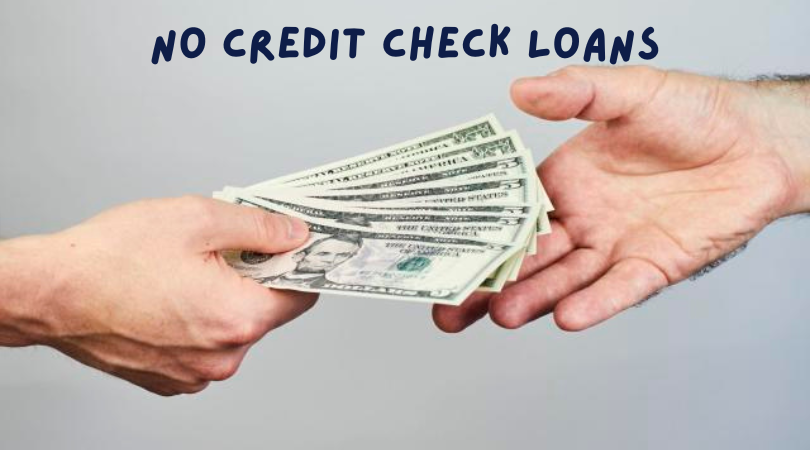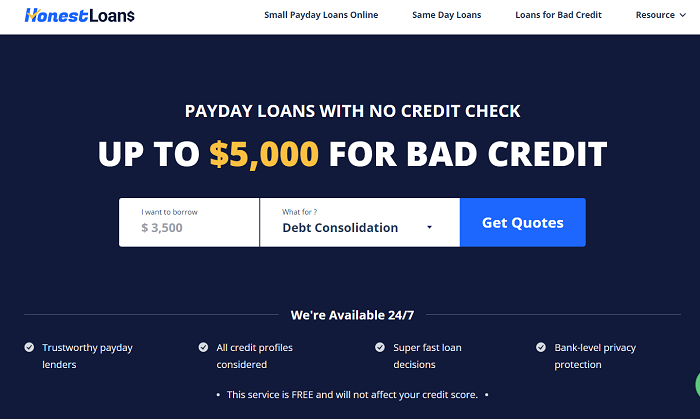$500 Payday Loans No Credit Check

In an era defined by economic uncertainty, the allure of quick financial solutions often proves irresistible. For many Americans facing unexpected expenses, the promise of a $500 payday loan with no credit check can seem like a lifeline. However, this seemingly convenient option often masks a complex web of risks and potential long-term financial repercussions.
This article delves into the reality behind "$500 payday loans no credit check," exploring their prevalence, the reasons behind their appeal, the associated dangers, and the broader implications for borrowers. It examines the regulatory landscape surrounding these loans, alternative financial solutions, and the expert perspectives needed to make informed decisions about short-term borrowing.
The Rise of No Credit Check Payday Loans
Payday loans, typically small-dollar, short-term advances, have become increasingly widespread, particularly online. The ease of access and the lack of stringent credit checks are major driving factors for their popularity. A quick search reveals countless online lenders offering "$500 payday loans no credit check," promising near-instant approval and funding.
The appeal is understandable: a car repair, a medical bill, or an unexpected home expense can create immediate financial pressure. Traditional loans can be time-consuming and require good credit, leaving many individuals with limited options, especially those with a thin or damaged credit history.
However, the "no credit check" promise is not without its caveats. Lenders offering these loans forgo traditional credit inquiries, relying instead on other factors such as proof of income and bank account information. This doesn't eliminate the lender's risk; it shifts it, often resulting in significantly higher interest rates and fees.
Understanding the Terms and Conditions
The Annual Percentage Rate (APR) associated with payday loans can be astronomically high, often exceeding 300% or even 400%. This contrasts sharply with the APRs of traditional loans or credit cards. Borrowers may find themselves trapped in a cycle of debt, struggling to repay the original loan amount plus the exorbitant interest and fees.
Payday loans typically require repayment within a short timeframe, often aligned with the borrower's next payday. This short repayment period can be problematic, especially if the borrower's financial situation remains unchanged. Rollover fees, charged when borrowers are unable to repay on time, further compound the debt burden.
Hidden fees and complex terms are common in the payday loan industry. Borrowers should meticulously review the loan agreement, paying close attention to the fine print. A seemingly simple "$500 loan" can quickly balloon into a much larger financial obligation.
The Risks of No Credit Check Loans
The absence of a credit check does not mean the absence of risk. While payday loans provide immediate relief, the associated costs can lead to long-term financial instability. Defaulting on a payday loan can negatively impact a borrower's credit score, making it even more challenging to access future credit.
Lenders may employ aggressive collection tactics, including contacting borrowers' employers or family members. This can create significant stress and damage personal relationships. The Consumer Financial Protection Bureau (CFPB) has received numerous complaints regarding abusive debt collection practices by payday lenders.
The cycle of debt is a significant concern. Many borrowers find themselves repeatedly taking out new payday loans to cover previous ones, trapping them in a spiral of debt that is difficult to escape. This cycle can lead to serious financial hardship, including bankruptcy.
Regulatory Landscape and Consumer Protection
The regulation of payday loans varies significantly from state to state. Some states have capped interest rates, while others have effectively banned payday lending altogether. The patchwork of regulations creates confusion and opportunities for lenders to exploit loopholes.
The CFPB has attempted to implement federal regulations on payday lending, but these efforts have faced legal challenges and political opposition. Consumer advocacy groups continue to push for stronger protections for borrowers.
It is crucial for borrowers to understand their rights and to report any predatory lending practices. State attorney generals and consumer protection agencies are valuable resources for information and assistance.
Alternative Solutions to Payday Loans
Before resorting to a payday loan, consider exploring alternative financial solutions. Credit counseling agencies can provide guidance on budgeting, debt management, and finding affordable loan options. Community banks and credit unions may offer small-dollar loans with more reasonable terms.
Negotiating with creditors or seeking assistance from social service agencies are other potential avenues. Many non-profit organizations offer financial assistance programs to individuals facing temporary financial hardship.
Borrowing from friends or family, while potentially uncomfortable, can be a more affordable option than a payday loan. Open communication and clear repayment terms are essential in such situations.
Expert Perspectives and Warnings
Financial experts overwhelmingly advise caution when considering payday loans. They highlight the inherent risks and the potential for long-term financial damage. "Payday loans are a debt trap," warns Jane Doe, a certified financial planner. "They are designed to keep borrowers indebted."
According to a study by the Pew Charitable Trusts, most payday loan borrowers are unable to repay their loans on time and end up paying more in fees than the original loan amount. The study also found that payday loans disproportionately affect low-income individuals and communities of color.
Richard Roe, an attorney specializing in consumer protection, advises borrowers to carefully read the loan agreement and to be wary of any lender that pressures them to borrow more than they need. "If it sounds too good to be true, it probably is," he cautions.
The Future of Payday Lending
The future of payday lending remains uncertain. Ongoing regulatory efforts and technological advancements are shaping the industry. The rise of fintech companies offering alternative lending products may provide borrowers with more affordable options.
However, the fundamental problem of financial vulnerability persists. Addressing the root causes of financial insecurity, such as low wages, lack of access to affordable healthcare, and inadequate financial literacy, is crucial to reducing the demand for high-cost, short-term loans.
Ultimately, informed decision-making is paramount. Borrowers must understand the risks and alternatives associated with payday loans and seek professional advice when needed. "$500 payday loans no credit check" may seem like a quick fix, but they often lead to long-term financial pain.











![$500 Payday Loans No Credit Check 1 Hour Payday Loans No Credit Check | [year] Guide](https://avocadoughtoast.com/wp-content/uploads/2022/02/1-Hour-Payday-Loans-No-Credit-Check.png)






